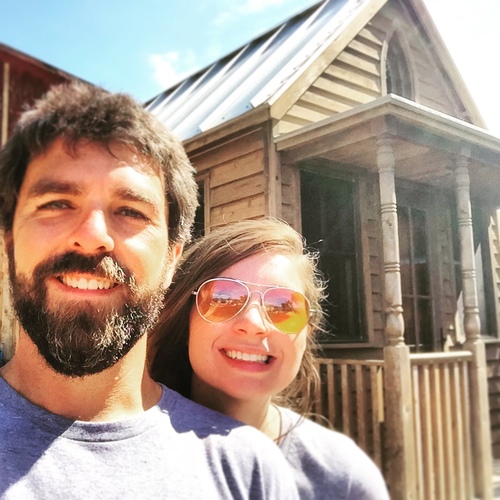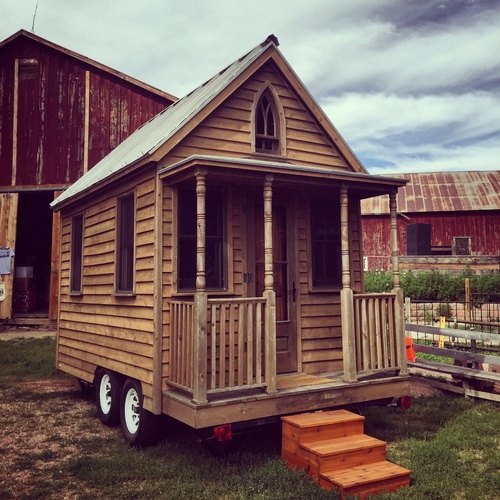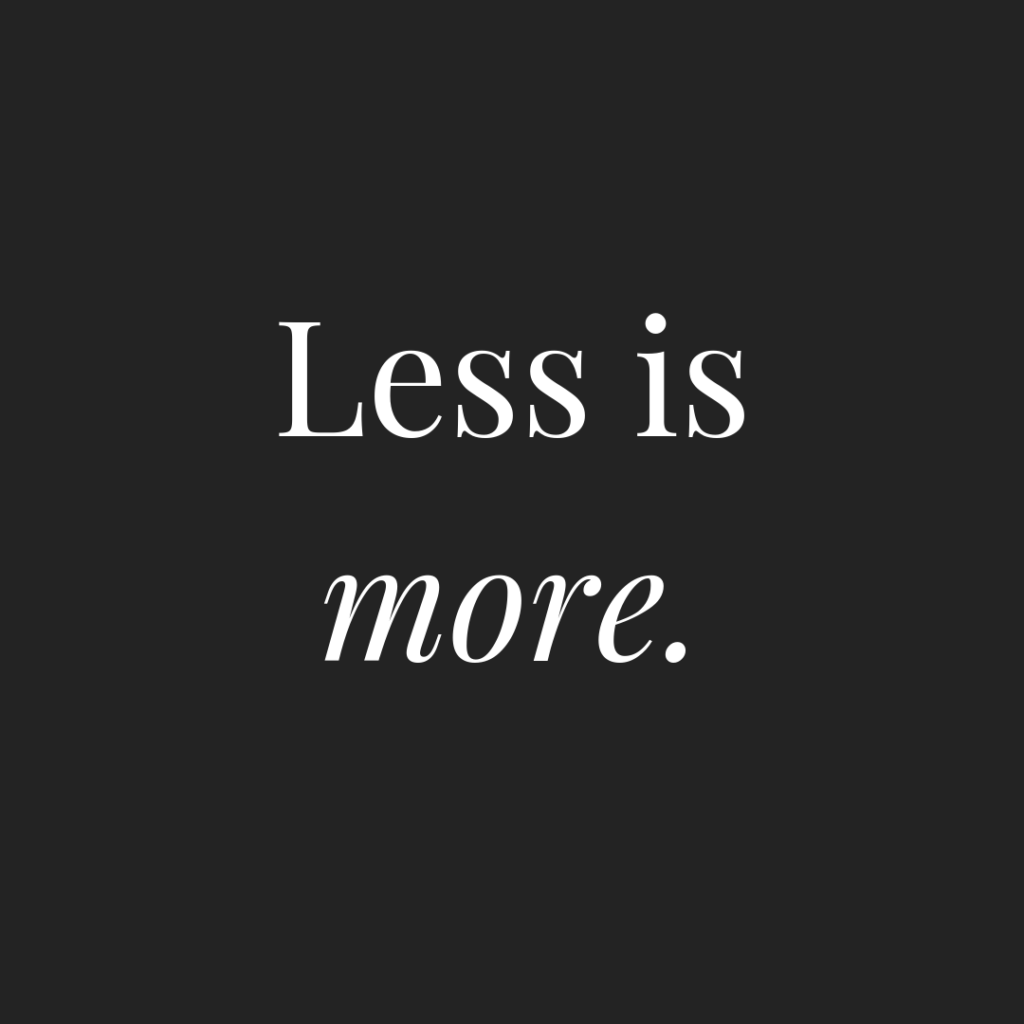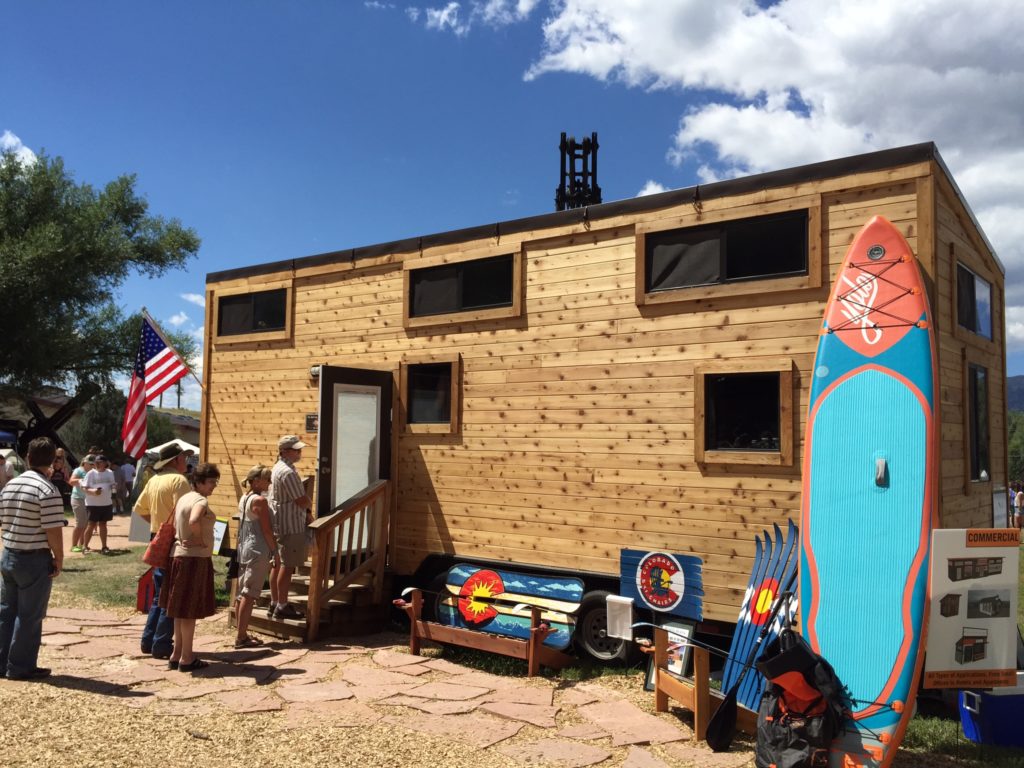
Is Tiny Living the Ultimate Expression of Individualism?
Those of us who have embraced tiny living know that a change of perspective is key to finding personal freedom.

in·di·vid·u·al·ism
1. the habit or principle of being independent and self-reliant
2. a social theory favoring freedom of action for individuals over collective
Living in the United States is all about an individualistic way of living. Right? As Americans, we value our freedoms above all. Freedom to say what we want, dress how we want, live where we want, act on our own judgment, etc. These freedoms allow us all to live as we each see fit, per our desires and needs.
But how many of us actually live in a manner that takes full advantage of this wonderful ability?
The mainstream norms of our society seem to work against both our awareness of nontraditional ways of living and our self-confidence in pursuing them. These norms, from commonly held attitudes to popular, socially accepted lifestyle choices, are programmed into us all from a young age, in media, through family acceptations and general societal pressures. As a result, the path to “success” in adulthood follows an and all-too-familiar series of steps.
Go to college using school loans. Get a sensible job. Open a credit card or two, or three. Buy a house. Get married. Have kids. Continue working your way up the ladder. Buy a new car; buy another one. Buy a bigger house. Fill the house with things. Work. Shop. Work. Shop, shop. Work. Take a two-week vacation. Work. And so on.
Diverging from this now traditional way of life, in our consumerist culture, can be viewed with a certain amount of disdain. To many, living with less material indicators of success is seen as a kind of failure— you must be poor or irresponsible or maybe even a “damn hippy.” Following a predictable path, filled with stuff, is seen as the lifestyle of choice. Can you say herd mentality?
Of course, as many of us know, outward appearances of success aren’t all they're cracked up to be. Just as the grand ol’ pursuit of the American Dream is not all, it's cracked up to be. But the opinions of our peers and neighbors have a powerful, lingering effect on our major life decisions.
As Americans, we value our freedoms, above all. Freedom to say what we want, dress how we want, live where we want, act on our own judgement.
As Will Rogers so aptly put it, “too many people spend money they haven't earned, to buy things they don't want, to impress people that they don't like.” In contrast, those of us who have embraced tiny living know that a change of perspective is key to finding personal freedom, from stress reduction to financial independence. Getting to know yourself and identifying your priorities are essential components of crafting a truly independent lifestyle. Certainly, a responsible approach that also builds self-respect.
Shake off the mold and redefine what personal success looks like to you.
At the end of the day, what you do to nurture your well-being is what matters. What are we without our health, a sense of security and an understanding that each of us is a work-in-progress? From my perspective, the journey and appreciation of self-discovery are one of the main highlights of living. Your personality, needs, and aspirations are always evolving to some degree— how exciting! There’s always something new to learn.
Most of us seek security and want an attractive, quality place to live. What does that look like to you? Is it a 2,500 square foot house with two car garage and hefty mortgage? Maybe not. A tiny or small home can provide an avenue for more tailored, manageable and affordable living experience.
For me, tiny living is an expression of the essence of who you are. It leaves you with the items you most love and most need. My advice: Minimize your possessions to uncover yourself.
If you live in a tiny house, you will likely have at least a little more money in the bank to save or enjoy spending on experiences. Also, you will probably have more time on your hands to enjoy your hobbies and notice all the little things about yourself that make you, you.
Our needs naturally change over time. A tiny home might not always be right for you. But rushing into a larger, more expensive traditional house can be a destructive ball and chain, in more ways than one.
The True Cost of Homeownership
The actual cost of a home includes  mortgage, maintenance and repair costs, utility costs, loss of personal time, an increase of stress that affects your health. Maybe a tiny house is the savvier investment, an investment in yourself—a path to a happier, healthier and more financially sound you. Living small can give you more options for your future, a more self-reliant future.
mortgage, maintenance and repair costs, utility costs, loss of personal time, an increase of stress that affects your health. Maybe a tiny house is the savvier investment, an investment in yourself—a path to a happier, healthier and more financially sound you. Living small can give you more options for your future, a more self-reliant future.
What I talk about is living in human scale. It’s not about square footage. It’s about what’s appropriate for you... Look at what’s really right for you. And the only way to really do that is to know who you are, know who your family is and what your needs are.
— Andrew Morrison
To sum up, choosing housing in a way that makes sense for your life— your personality, lifestyle preferences, goals— you are creating your own freedom. Freedom from the herd.
Tiny/small house living is freedom from the status quo of the mainstream American lifestyle. Thus, small space living provides more room to develop as an individual, so that you can end up in your long-term, just-right house.
